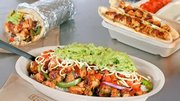News
SERVICE: Motion studies
Servers who learn to consolidate their steps are typically the most efficient and productive and, ultimately, the best tipped.
September 18, 2005
As much as some servers walk and run during a shift, you'd think they were being paid by the mile. But they're not, obviously, and those who learn to consolidate their steps are typically the most efficient and productive and, ultimately, the best tipped.
Making the most of every step is especially important now that the outdoor dining season is in full swing. In
 |
Paul Paz |
Let's say that the place where I work has an outside deck located 30-plus yards from the nearest service area, bar or kitchen. A guest asks for a cup of coffee, I hurry to get it and return with the steaming beverage only to hear the same guest say, "I need some cream." I rush to retrieve that, return to the table to hear her date add, "That looks good. I think I'd like one too," and off I go again.
If you do the math, I just traveled 180 yards — the distance of one-and-four-fifths football fields — for two cups of coffee and cream.
This could have been avoided easily by taking the first guest's request, offering coffee to everyone else at the table and bringing cream and sugar automatically. Better yet, if any of my other tables had already finished dinner, I could have offered coffee to them, collected several cups and a full pot of java and a bunch of cream and sugar in one run.
* Any experienced server knows that people arrive in larger groups during the warmer weather because it's a social season. And because there are so many large-gathering events occurring during summer, when those events end, a large herd arrives at the door wanting to be seated all at once. The net result is being double- or triple-seated by the hostess, and/or receiving a lot of requests for separate checks. Instead of panicking or getting frustrated in this situation, be proactive.
When I'm triple-seated, I simply treat those tables as if they were one large party and get all those customers' beverage and appetizer orders at one time. This is far more efficient than getting one table's order, placing it with the bar/kitchen, and then repeating the process with the each subsequent table. If I did that, I'd be back to racking up foot mileage, which helps neither me nor the guests or the restaurant.
I also ask up front, "Would you like separate checks?" Not only does this avoid the misery of having to divide up one large check, guests appreciate being asked beforehand. (Some servers even believe guests will order a little more food and drink if you give them separate checks. That's because the guests don't have to worry about someone in their party being overcharged unfairly by their own purchases. In other words, they feel freer to have what they really want.)
* Offer common accompaniments at the time the order is taken. For example, if a party orders pizza or pasta, ask if they'd like grated Parmesan or crushed red pepper to arrive on the side. That saves you and possibly a food runner the hassle of fetching it when you bring the food to the table.
* When a guest asks for a refill of a beverage, invite everyone at the table to do the same. If it's late in the meal, it's also a good time to suggest after-dinner coffee.
* Assess your station's service needs. Waiting tables is like piloting an F-18 jet streaking towards multiple targets while constantly changing speed and direction. So as you approach your station, anticipate your customer's needs by taking 5 seconds to size up all your tables. Assess what each needs next and prioritize those needs. Do they need drink refills, pre-bussing, desserts, an entrée order, checks, etc.? Chances are none of the tables will have the same needs at the same time, but this
|
Lastly, exit your station the same way you entered it. Ask yourself, "What do I need to take away?" Pre-bussing is almost always possible here, and it may save a trip or two to the dish area.
* Be a team player by doing for other servers what you'd like them to do for you. If you're holding a water pitcher or coffee pot and see empty glasses or cups on tables in another station, refill them and let that server know you did that. If you see food waiting at the kitchen pick up window, offer to take it to the table. Do the same at the bar.
Teamwork is crucial not only to great guest service, but to trimming steps off each and every server's shift as well. And the beautiful thing about teamwork is that it typically multiplies. When one starts helping another, the beneficiary finds opportunities to benefit others.
In the meantime, Make It Fun... Make It Easy... Make Some Money!
 ChatGPT
ChatGPT Grok
Grok Perplexity
Perplexity Claude
Claude












